Air conditioner problems in your car can be extremely frustrating. But can an air conditioner cause the check engine light to come on? We did the research to bring you the answer.
Depending on the issue with your car's air conditioner, it could potentially trigger the check engine light. Typically, if there is a problem with the AC compressor, it can cause the check engine light to come on. A faulty thermostat can also cause similar issues.
It can be challenging to pinpoint what exactly is causing the check engine light to come on. In this article, we will discuss when an air conditioner can cause the check engine light to come on in your car. In addition, we will answer other frequently asked questions about car air conditioners and check engine lights. Without further ado, let's get into it!
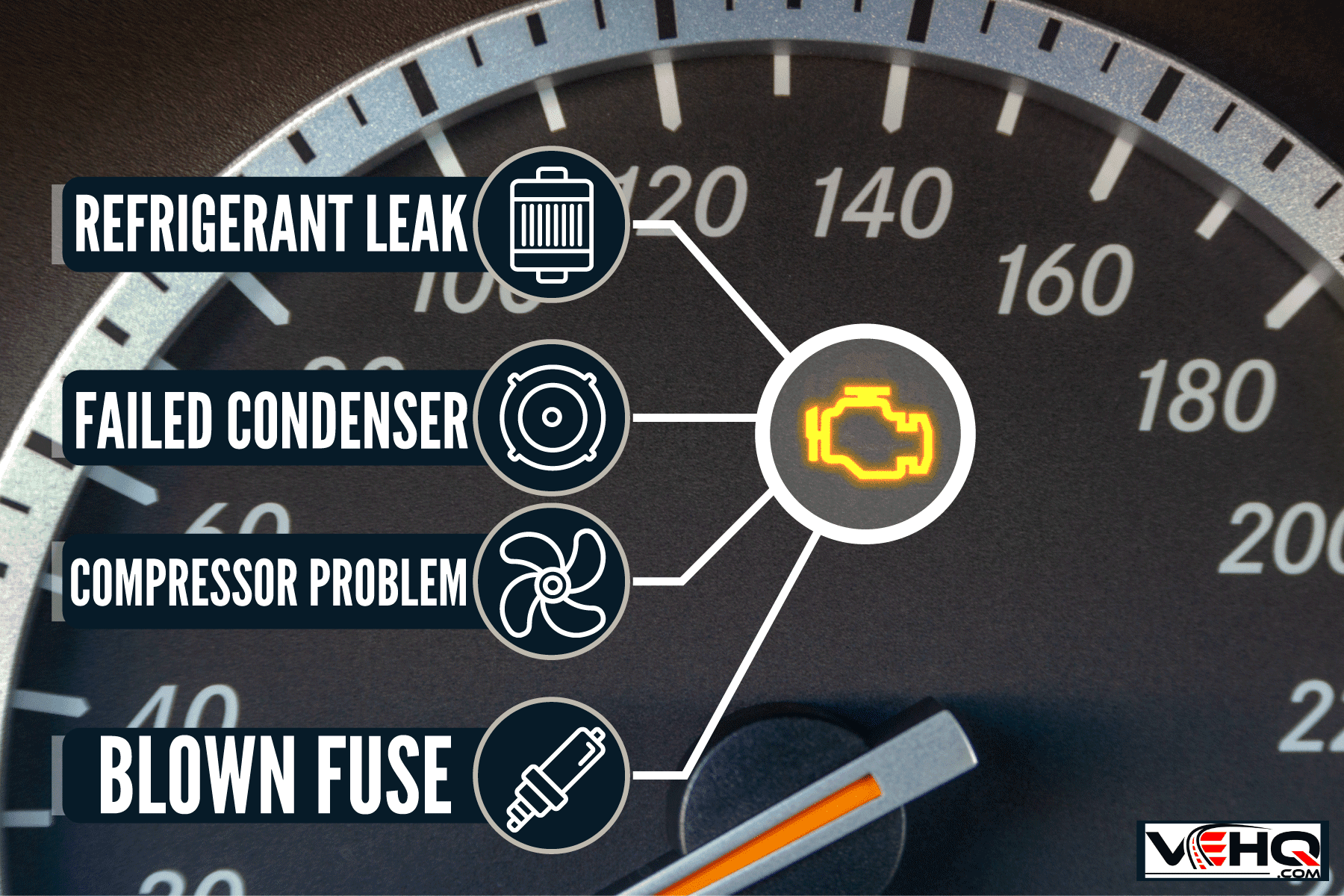
Can An Air Conditioner Cause The Check Engine Light To Come On?
There are several components to your car's air conditioner, including the compressor, condenser, and evaporator. Each one of these components plays an important role in the proper function of your AC system.
In addition to these main components, your car has other important AC parts that help keep the system running smoothly. While some of these parts will cause the check engine light to come on if they are not working properly, others will not.
The compressor is the most important part of your car's air conditioner. It is responsible for circulating the refrigerant throughout the AC system. If the compressor is not working properly, it can cause the check engine light to come on.
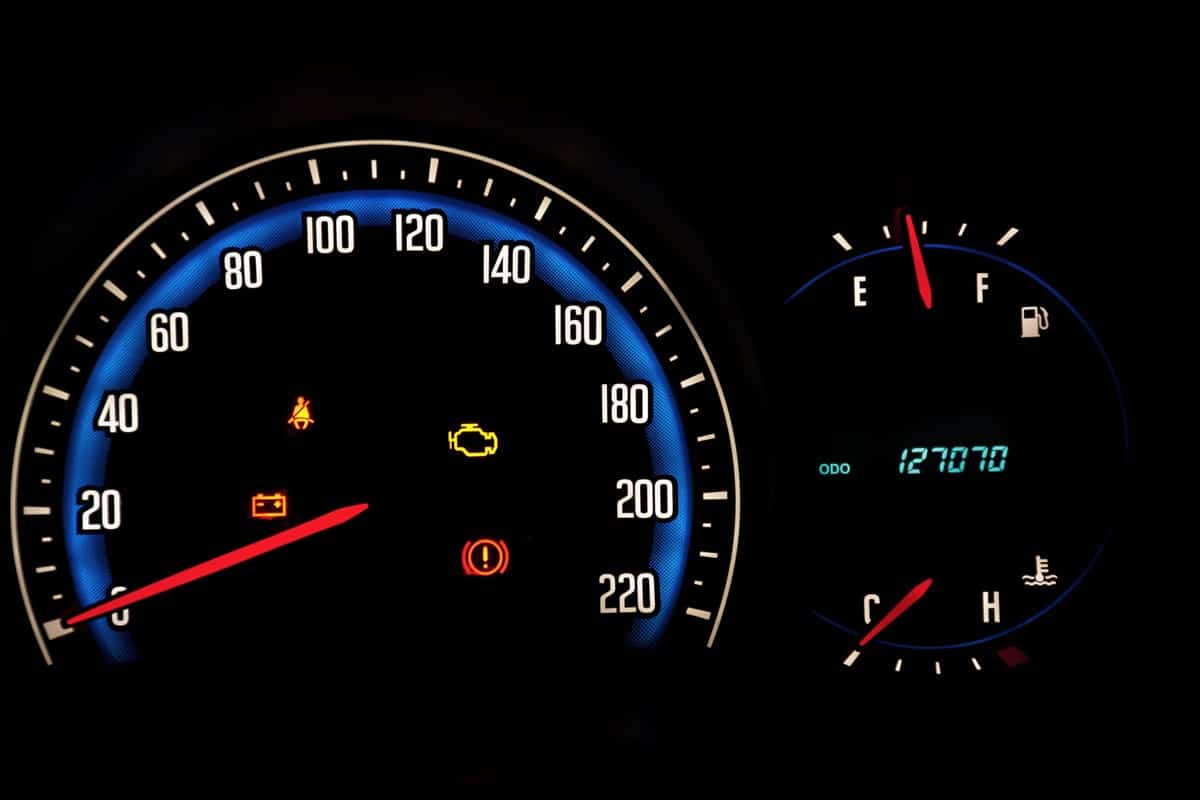
A faulty thermostat can also cause the check engine light to come on. The thermostat regulates the flow of coolant through the AC system. If it is not working properly, it can cause the check engine light to come on.
Check the code if your air conditioner is acting up and the check engine light is on. Most auto parts stores will read the code for free if you don't have a code reader.
This is an inexpensive way to diagnose the problem and see if it is something that can be fixed easily. Sometimes, the check engine light will come on for a minor issue that can be easily fixed.
If you have a more serious problem with your air conditioner, you may need to take it to a mechanic or dealership to repair it.
When Should I Take My Car To A Mechanic?
Depending on your own mechanical skills and knowledge, you may be able to fix some air conditioner issues on your own. However, if you are not confident in your abilities, it is always best to take your car to a mechanic.
If you can diagnose the problem yourself but don't need your air conditioner fixed immediately, you may want to wait until your next scheduled maintenance appointment. This way, you can avoid paying for an expensive repair if it is not absolutely necessary.
If your car's air conditioner is not working or if the check engine light is on, you should take your car to a mechanic as soon as possible. These are signs of a more serious problem that will likely require professional help to fix.
It's always possible there is an underlying problem causing your car's air conditioner to malfunction. However, ignoring the problem could lead to further damage and an even more expensive repair bill.
Why Is My Car Air Conditioner Not Working?
As we mentioned earlier, the compressor and thermostat can throw a check engine light. However, your air conditioner can stop working without triggering a check engine light.
This can make it more difficult to diagnose on your own since there are many potential causes. You can quickly narrow down the potential causes with a code reader by checking for specific error codes.
But without a check engine light, you'll have to do some more troubleshooting to figure out the problem. To help you out, let's take a look at common reasons why your car's air conditioner might not be working.
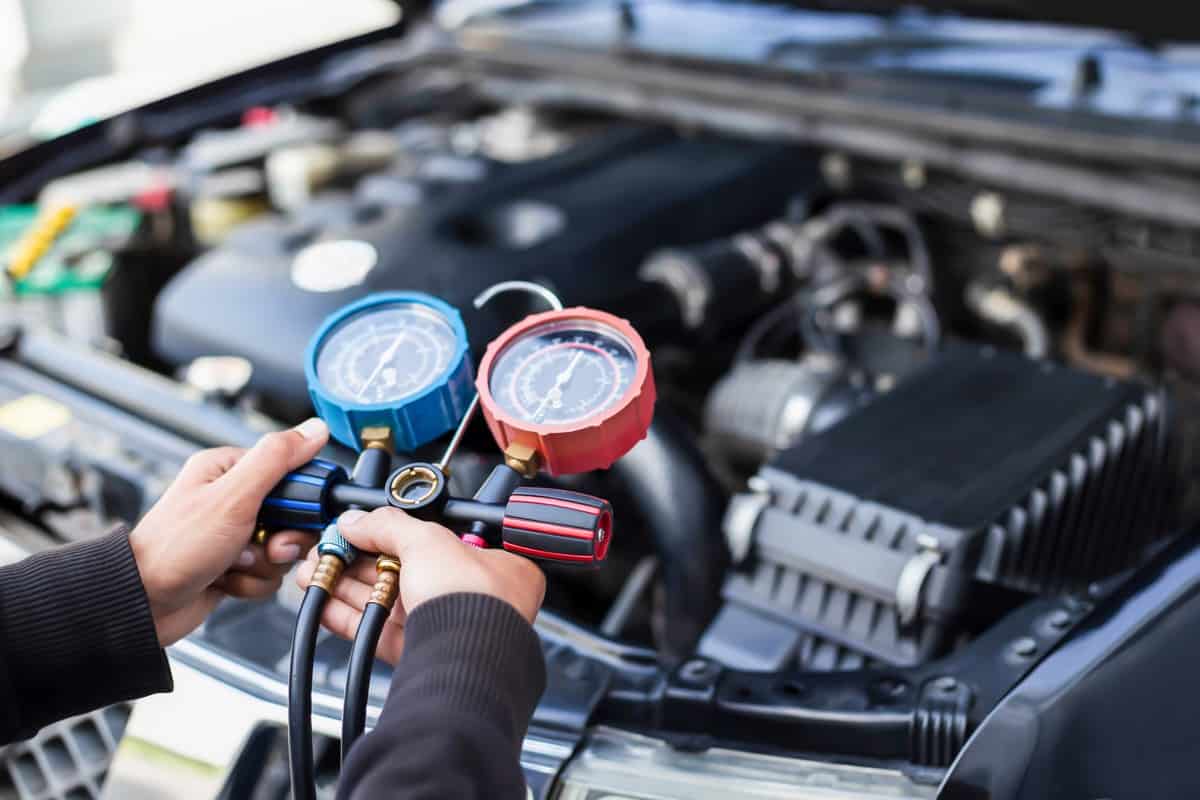
Refrigerant Leak
Refrigerant is what gives your car's air conditioner its cooling power. However, the refrigerant will slowly escape if there is a system leak. This can cause your air conditioner to stop working altogether.
A refrigerant leak is often accompanied by a hissing sound coming from the AC unit. If you hear this sound, then it's a good indication that there is a leak. You need to locate and repair the leak as soon as possible. Otherwise, the refrigerant will continue to escape and cause more damage to your AC unit.
Compressor Problem
The compressor is responsible for circulating the refrigerant throughout the AC system. If it is not working properly, then the system will not be able to cool the air.
A failed compressor will often cause a burning smell coming from the AC unit. If you notice this smell, then it's a good indication that the compressor has failed and needs to be replaced.
Most compressors are not repairable, so you will likely need to replace the entire unit. This is an expensive repair, so it is best to take your car to a mechanic as soon as possible.
Blown Fuse
A blown fuse or other electrical problems can also cause your car's air conditioner to stop working. A fuse can blow, causing a loss of power to the AC unit.
To check for a blown fuse, you will need to consult your car's owner's manual. It will tell you where the fuse box is located and which fuse controls the AC unit. If the fuse is blown, you will need to replace it with a new one. If the fuse is not blown, then you will need to check for other electrical problems.
Failed Condenser
Your vehicle's condenser turns the refrigerant from a gas to a liquid. If it is not working properly, then the system will not be able to cool the air.
A failed condenser will often cause your car's AC unit to smell burnt or cause coolant leaks. If you notice either of these problems, then it's a good indication that the condenser has failed and needs to be replaced.
Faulty Cooling Fans
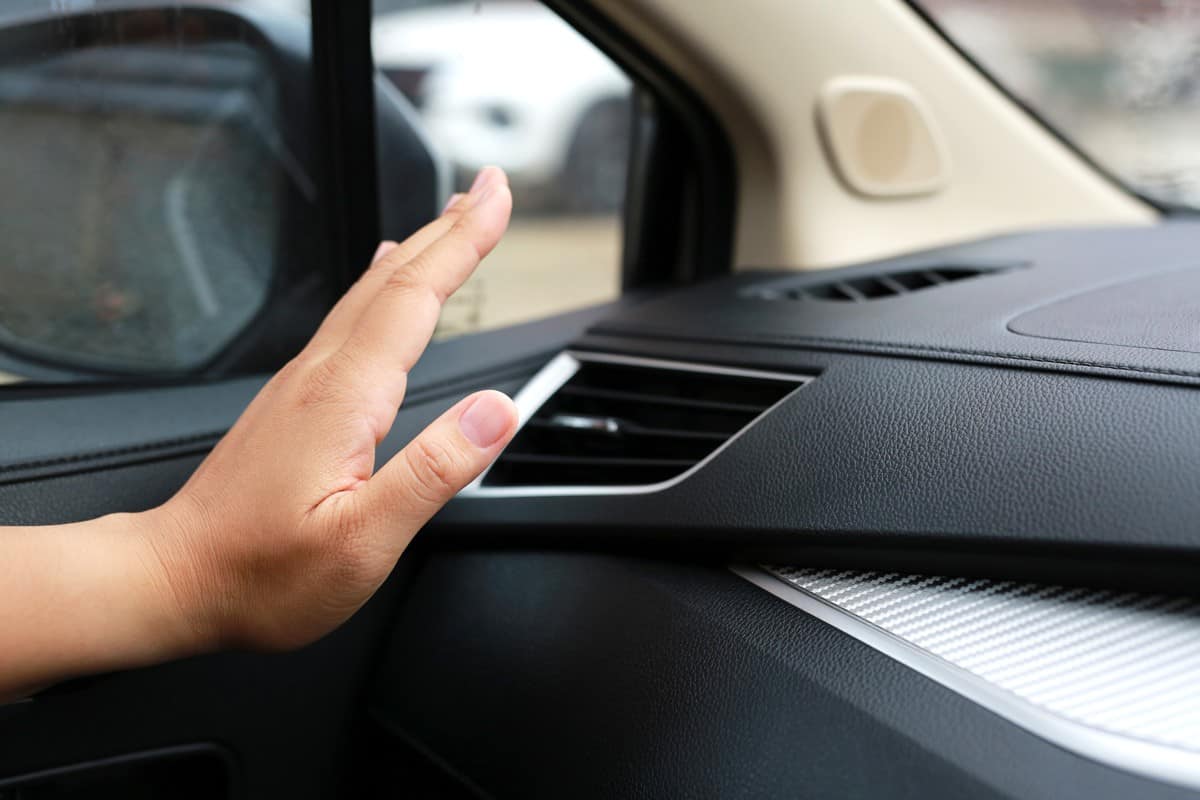
Another common problem is faulty cooling fans. These fans are responsible for cooling the condenser. If they are not working properly, then the system will not be able to cool the air.
You can usually tell if the cooling fans are not working properly if you hear a loud noise coming from the AC unit. If you notice this problem, then it's a good indication that the cooling fans need to be replaced.
Is It Okay To Drive With The Check Engine Light On?
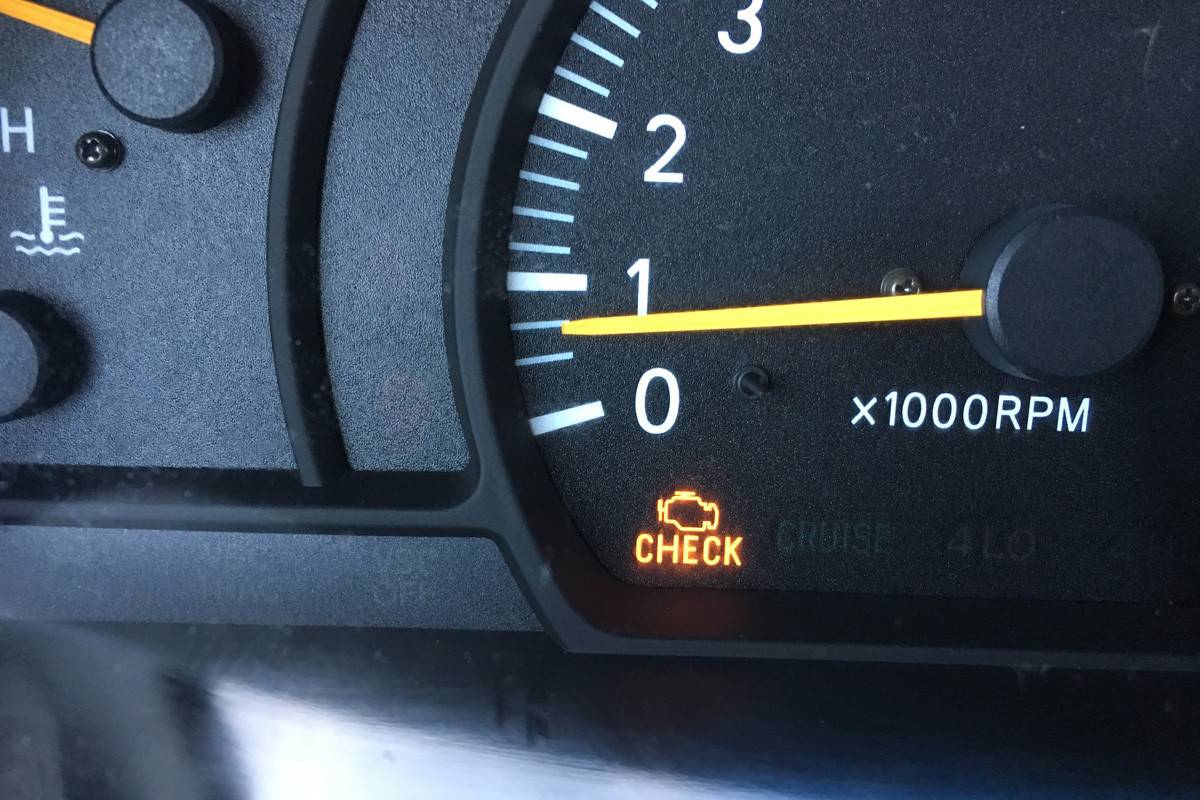
Depending on the problem, it might be okay to drive with the check engine light on. However, getting the problem checked out as soon as possible is always best.
A steady check engine light that isn't flashing usually indicates a less serious problem. Therefore, it is usually okay to drive your car for a short period of time with a steady check engine light.
However, if the check engine light is flashing, then this indicates a more serious problem. Therefore, driving your car with a flashing check engine light is not advisable.
If you had the check engine light checked out, which turns out to be a minor problem, you can usually just reset the light. However, if the check engine light is still on after you've reset it, then this indicates that there is a more serious problem.
Sometimes a check engine light will come on for no apparent reason. In this case, it is usually best to just take your car to a mechanic and have them check it out.
Is Car AC Worth Fixing?
There are several factors to consider when deciding whether or not to fix your car's AC unit. The most important factor is the cost of the repair.
If the repairs are going to be expensive, then they might not be worth fixing. However, if the repairs are relatively inexpensive, then it might be worth it to fix the AC unit.
It also depends on the region you live in. For example, a place like Arizona is going to be much hotter than a place like Seattle. In this case, it might be worth fixing the AC unit, even if the repairs are relatively expensive.
Another factor to consider is how often you use your car's AC unit. If you only use it occasionally, then it might not be worth fixing. However, it might be worth fixing if you use your AC unit frequently.
Ultimately, the decision of whether or not to fix your car's AC unit is up to you. Consider all the factors involved and make the best decision for you.
Final Thoughts
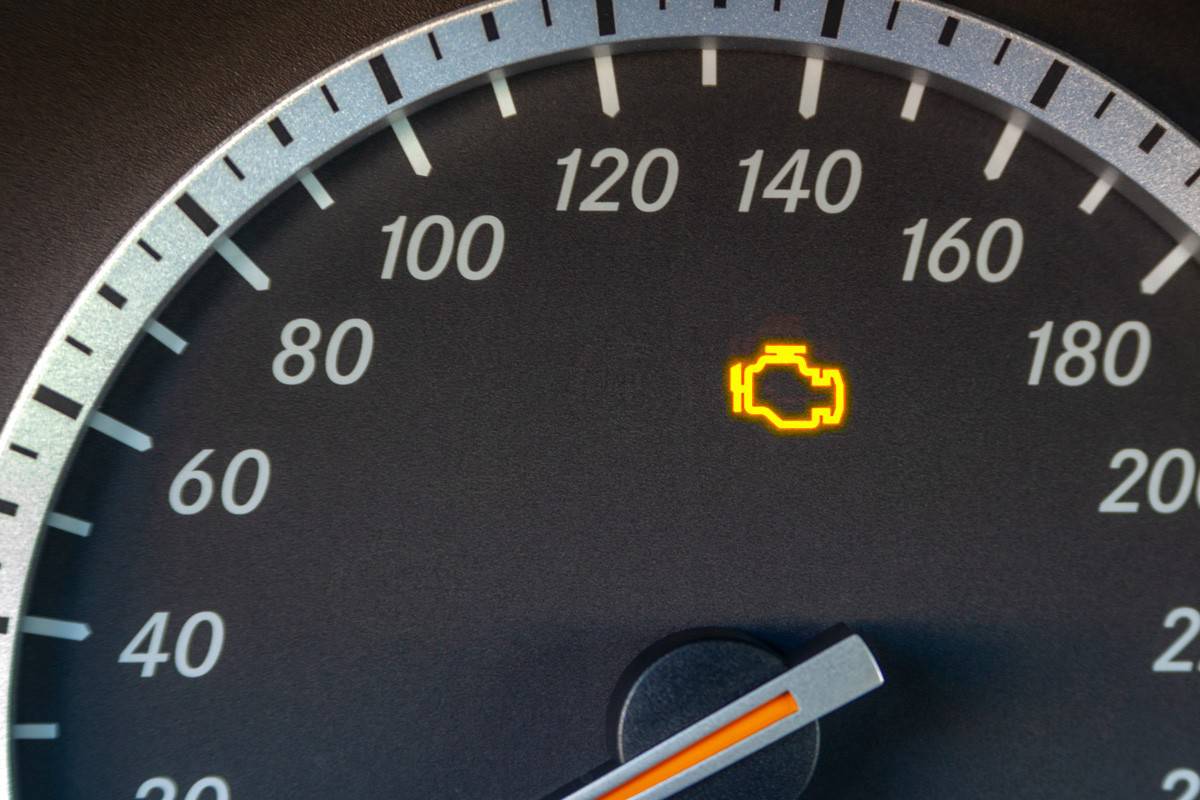
If your vehicle's AC is the reason for the check engine light, it will be up to you to decide whether or not fixing the AC unit is worth it. Consider all of the factors involved, such as the cost of repairs and how often you use your car's AC unit.
Made it to the end? Here are other articles you might find helpful:
How Long Can A Car Battery Run An Air Conditioner?
Air Conditioner Only Works When Driving – What Could Be Wrong?
